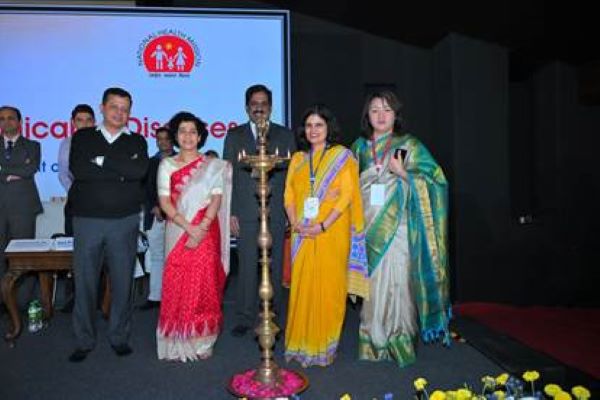The conference featured comprehensive discussions, field visits, and knowledge-sharing sessions addressing different aspect of major NCDs

Speaking at the National Workshop on Non-Communicable Diseases (NCDs), Punya Salila Srivastava, Union Health Secretary emphasized the need for inter-sectoral collaboration, enhanced research, and innovative practices to address the growing burden of NCDs.
She stated that “this national workshop marked a significant step toward achieving the government’s vision of a "Healthy India", with an emphasis on universal access to quality healthcare services and the reduction of premature mortality from NCDs.”
The conference featured comprehensive discussions, field visits, and knowledge-sharing sessions addressing different aspect of major NCDs, including Diabetes, Hypertension, Chronic Kidney Disease (CKD), Chronic Respiratory Disease (CRD), Non-Alcoholic Fatty Liver Disease (NAFLD), Stroke, and Cancer.
The workshop commenced with field visits to key health facilities in Telangana, where participants observed best practices and innovative approaches to NCD management at the ground level. These visits provided critical insights into the operational aspects of primary and secondary healthcare interventions.
Community-based interventions were a major focus, with sessions emphasizing the role of campaigns such as Fit India and Eat Right India. Nagaland’s exemplary tobacco cessation and deaddiction initiatives and Telangana’s integration of yoga and wellness practices were highlighted as replicable models for other states.
State-specific practices received particular attention. Assam’s hypertension control program, Tamil Nadu’s comprehensive NCD screenings, and Andhra Pradesh’s robust cancer care infrastructure were showcased for their innovative approaches and outcomes. Presentations from other states showcased how tailored strategies can address regional challenges effectively. By tailoring approaches to cultural and regional contexts, these programs have achieved notable success and offer replicable strategies for other states.
A special session on research priorities underscored the need for implementation research to bridge gaps in prevention, screening, and treatment.
Presentations on challenges in screening, diagnosis, and management of NCDs by eminent experts from various medical institutions in the subject domain such as ST Elevation Myocardial Infarction, Chronic Kidney Disease, Chronic Respiratory Disease, Non-Alcoholic Fatty Liver Disease, and Stroke were presented where the experts shared their views and experiences to reduce the burden of NCDs.
Special focus was placed on strengthening cancer care infrastructure, with sessions on augmenting cancer care at district hospitals, the role of tertiary care centers, and population-based cancer registries. Strategies to address gaps in cancer care—from screening to follow-up—were explored in depth, with contributions from leading experts in Oral, Breast, and Cervical Cancer.
Best practices from Telangana and Tamil Nadu were discussed for strengthening secondary-level NCD clinics and expanding comprehensive screening programs.

Subscribe To Our Newsletter & Stay Updated